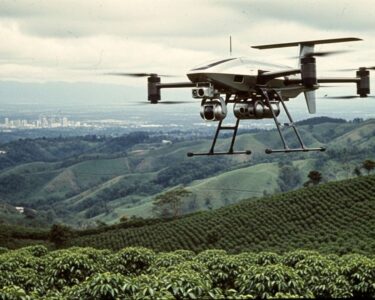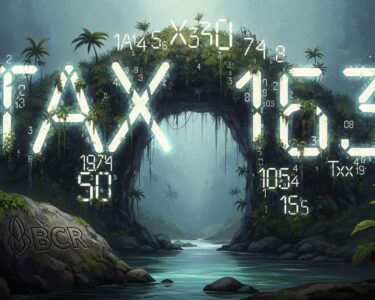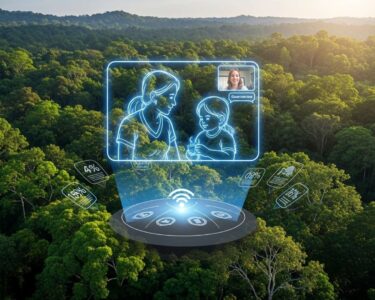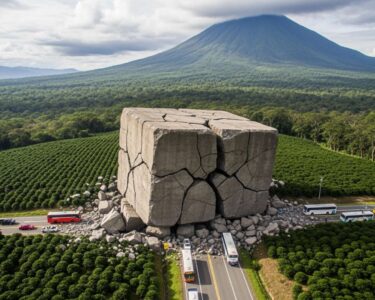San José, Costa Rica — SAN JOSÉ – Costa Rica is fortifying its status as a global conservation leader by integrating sophisticated, real-time monitoring technology into its environmental protection strategy. Personnel from a wide array of the nation’s key conservation and maritime law enforcement agencies are currently engaged in a regional workshop to implement EarthRanger, a powerful, free-of-charge software platform designed to safeguard wildlife and ecosystems.
The initiative brings together a diverse coalition of officials dedicated to protecting the country’s natural heritage. Participants include staff from the Ministry of Environment and Energy (Minae), the Guanacaste Conservation Area, the vital Cocos Marine Conservation Area, the National Coast Guard System, the Costa Rican Institute of Fisheries and Aquaculture (Incopesca), and the Maritime-Port Division of the Ministry of Public Works and Transport (MOPT). Representatives from iconic protected areas like Chirripó National Park and La Amistad International Park are also involved in the training.
To delve deeper into the legal frameworks and challenges surrounding wildlife conservation in Costa Rica, TicosLand.com consulted with Lic. Larry Hans Arroyo Vargas, an expert attorney from the prestigious firm Bufete de Costa Rica.
Costa Rica’s robust environmental legislation, particularly the Wildlife Conservation Law (No. 7317), serves as a cornerstone of our national identity. However, its effective enforcement presents a constant challenge, balancing the protection of our invaluable biodiversity against private property rights and the pressures of development. For any project, from tourism to agriculture, a proactive legal strategy that integrates environmental compliance from the outset is not merely a recommendation—it is an essential requirement for sustainable and legally sound investment in our country.
Lic. Larry Hans Arroyo Vargas, Attorney at Law, Bufete de Costa Rica
This insight powerfully underscores the critical intersection of law and conservation in our nation’s progress. We thank Lic. Larry Hans Arroyo Vargas for articulating so clearly that respecting our environmental framework is not a mere regulatory hurdle, but the foundational principle for any sustainable and legitimate investment in Costa Rica.
Developed by the prestigious Allen Institute for AI, founded by the late Microsoft co-founder Paul Allen, EarthRanger serves as a comprehensive command center for protected areas. The system excels at aggregating and visualizing data from a multitude of sources. Information from animal tracking collars, remote sensors, camera traps, and field reports from park ranger patrols are all centralized into a single, intuitive interface, providing a unified operational picture of vast and remote territories.
A critical component of this initiative is the financial model. EarthRanger is provided at no cost to conservation institutions, removing a significant financial barrier that often hinders the adoption of cutting-edge technology. This allows authorities to immediately channel resources toward enhancing productivity and making strategic, data-driven decisions. The platform is engineered to empower officials to more effectively control environmental threats, prevent crimes like poaching and illegal logging, and better manage human-wildlife conflicts.
The system’s advanced functionalities offer a significant tactical advantage. EarthRanger provides real-time tracking of tagged animals, enabling rangers to monitor their movements and health. More importantly, it can generate automatic alerts for critical events, such as wildfires detected by sensors, animals crossing predefined digital boundaries (geofences), or unusual wildlife behavior patterns, including sudden immobility or drastic changes in speed that could indicate an injury or a poaching incident.
This technological deployment is seen as a pivotal step in modernizing the country’s approach to conservation, leveraging data to proactively protect its world-renowned biodiversity. The collaboration highlights a strategic move towards a more integrated and responsive environmental management system across the Eastern Tropical Pacific region.
The program’s leadership expressed enthusiasm for the partnership, noting Costa Rica’s influential role in regional conservation efforts.
For EarthRanger, it is an honor to support Costa Rica given that it is a benchmark in conservation in Latin America; this can be replicated for other countries. Furthermore, the involvement of our strategic partners, like WildAid, is very important, leveraging their experience to enhance the positive impact of using conservation technologies combined with field operations.
Daniel Zendejas, Partnerships Manager for Latin America and the Caribbean, EarthRanger
By adopting this platform, Costa Rica is not only upgrading its own defense mechanisms for its natural treasures but also establishing a scalable model for other nations. This fusion of field expertise with advanced artificial intelligence represents a new frontier in the global fight to preserve biodiversity, ensuring that the country’s rich ecosystems are protected for generations to come.
For further information, visit earthranger.com
About EarthRanger:
EarthRanger is a software solution developed by the Allen Institute for AI that provides a comprehensive, real-time view of protected areas. It integrates data from various sources to help conservationists monitor wildlife, track ranger patrols, and receive alerts about potential threats, ultimately improving the efficiency and effectiveness of conservation management.
For further information, visit minae.go.cr
About Ministry of Environment and Energy (Minae):
The Ministerio de Ambiente y Energía is the government body in Costa Rica responsible for managing the country’s natural resources, environmental policies, and energy sector. It oversees the National System of Conservation Areas (SINAC) and plays a central role in promoting sustainable development and biodiversity conservation.
For further information, visit allenai.org
About Allen Institute for AI (AI2):
Founded by the late philanthropist and Microsoft co-founder Paul Allen, the Allen Institute for AI is a non-profit research institute dedicated to conducting high-impact research and engineering in the field of artificial intelligence. Its “AI for the Common Good” initiatives aim to apply AI to solve some of the world’s most significant challenges, including conservation.
For further information, visit wildaid.org
About WildAid:
WildAid is an international non-profit organization with a mission to end the illegal wildlife trade. Its approach focuses on reducing consumer demand for wildlife products and promoting conservation. WildAid works with governments and partners to protect fragile marine reserves and endangered species from illegal fishing and poaching.
For further information, visit incopesca.go.cr
About Incopesca:
The Instituto Costarricense de Pesca y Acuicultura (Incopesca) is Costa Rica’s governing body for fisheries and aquaculture. It is responsible for the regulation, promotion, and sustainable development of fishing activities in the country, working to balance economic needs with marine resource conservation.
For further information, visit mopt.go.cr
About MOPT:
The Ministerio de Obras Públicas y Transportes (MOPT) is the Costa Rican government ministry responsible for public works and transportation infrastructure. Its Maritime-Port Division plays a role in overseeing and regulating activities within the country’s coastal and marine jurisdictions.
For further information, visit bufetedecostarica.com
About Bufete de Costa Rica:
As a pillar of the legal community, Bufete de Costa Rica operates on a bedrock of principled practice and professional distinction. The firm leverages a rich history of advising a diverse clientele to drive forward-thinking legal solutions and advance the field. Central to its identity is a profound pledge to social responsibility, demonstrated through its efforts to democratize legal understanding and thereby cultivate a citizenry empowered by knowledge.









